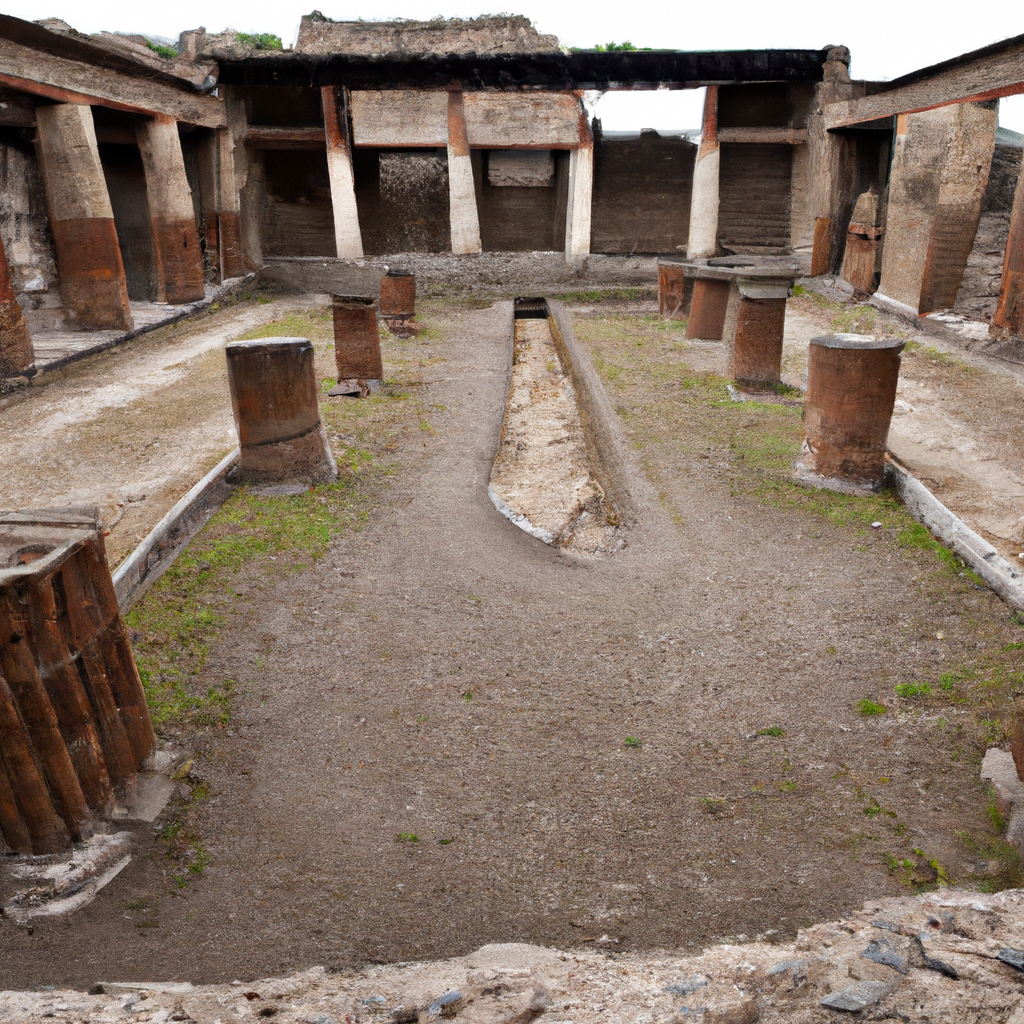
Echoes of Antiquity: Pompeii's Magnificent Banquet Hall
In an astonishing revelation from the past, the timeless whispers of Pompeii have once again reached our present, providing an exquisite glimpse into the lavish lifestyle of the Roman elite. Recent archaeological excavations have unearthed a grand banquet hall adorned with mesmerizing frescoes that immortalize the epic narratives of the Trojan War, a subject that has captivated the imaginations of countless generations.
This newly discovered dining area, measuring an expansive fifty-by-twenty feet, was a centerpiece of sophisticated social gatherings, eloquently designed to host the crème de la crème of ancient Roman society. The hall's walls, now vividly brought back to life, are covered in splendid frescoes that portray illustrious mythological creatures and heroes, whose stories are intricately interwoven with the threads of destiny and heroism.
The artistry of these frescoes transcends mere decoration; they are a portal to the philosophical and cultural heartbeat of an era that laid many of the foundations for Western civilization. Each brushstroke and color choice tells a story of artistic endeavor and meticulous craftsmanship, reflective of a society that valued beauty and storytelling as essential elements of everyday existence.
Imagine the scene: elite members of Pompeian society, reclining in this opulent setting, surrounded by scenes of Achilles, Hector, and perhaps even the enigmatic Helen, their conversations likely spurred by the dramatic tales illustrated on the very walls that enclosed them. These gatherings were not just meals; they were performances of status, intellect, and power, underpinned by the visual storytelling of skilled artists.
The preservation of these frescoes, shielded for centuries under the protective shroud of volcanic ash from Mount Vesuvius’s catastrophic eruption in 79 CE, offers an invaluable look into the past. It is a poignant reminder of nature’s dual role as both creator and destroyer, having shielded these artworks even as it obliterated the city itself.
For scholars, historians, and art lovers, the discovery represents more than an archaeological triumph. It is a reaffirmation of human resilience, beauty, and the enduring power of art to convey the deepest human emotions and cultural truths across ages. As we gather around modern-day tables in the metropolis of New York, let us reflect on the universal saga of human gatherings, finely spiced with the art that continues to define our shared heritage and humanity.
In a city that prides itself on its rich culture and insatiable appetite for history and the arts, these ancient Roman frescoes stir a curious juxtaposition. In the shadow of New York's own towering edifices, the echoes of Pompeii’s opulent dining hall invite a profound appreciation for the ancient world, whose echoes shape our own attempts at beauty and cultural immortality.